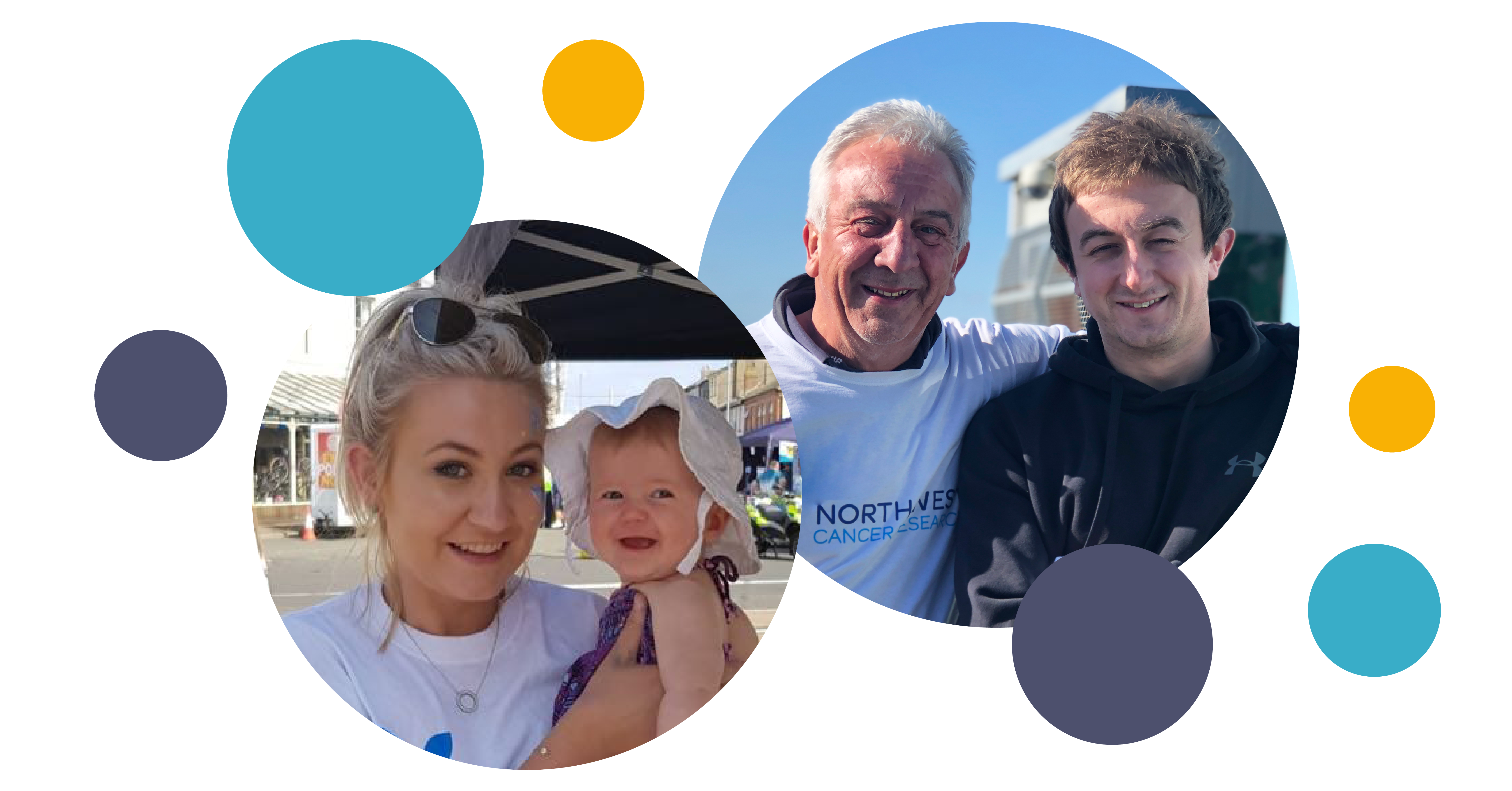Why Family Matters
How could your family be impacted by our region's cancer patterns?

How could your family be impacted by our region's cancer patterns?

With around half us likely to develop some form of cancer during our lifetime and around four million people expected to be facing the disease by 2030, there’s no doubt that cancer is one of the country’s biggest challenges. But, it’s a challenge that we can eventually win.
Across the UK, the most common types of cancer are breast, lung, prostate and bowel. And, while there are natural parallels between the national picture and that of specific regions, it’s essential that we a take a tailored approach when tackling the disease.
That’s why, here at North West Cancer Research, we put the cancer needs of our region first, exploring the impact that the disease has across communities in North West England and North Wales.
How is our region affected by cancer?
To effectively tackle the cause, improve the care and find a cure for local people, we look at how each area is impacted by cancer, focusing on which types are most prevalent and which demographics are most affected. This allows us to create and lead research projects that can, ultimately, help create a cancer-free future.
Of course, this mission is not one that can be completed overnight and we are therefore committed to funding world-leading research that can bring our vision to life.
We want our region’s families of today to be confident that their children, grandchildren and great-grandchildren of tomorrow will be able to live in a world where cancer simply does not exist.
In the North West and North Wales, there are very clear trends in cancer incidences. Our regional report revealed that incidences of lung, trachea and bronchus cancers are 26% higher in the North West compared to rates across the rest of England. Colon cancer is a key challenge for North Wales, with an incidence rate 18% higher than the Welsh average.
We also found that the North West of England and North Wales record higher rates of head and neck cancers with a rate 18% higher than the averages for England and Wales. Bladder cancer is another area of concern, with both North Wales and North West England showing markedly higher rates of this disease than the national rates across Wales and England.
Sadly, these are patterns that continue year after year, affecting generation after generation. And, with research showing that 70% of Brits stay living within 50 miles of their hometown, it’s vital that we take action now to protect all our families’ futures.
We need to break the pattern of cancer in our region so that we can break the pattern for your family tree.
How does cancer impact your family?
It’s every family’s worst nightmare but, devastatingly, one that comes true for so many of us – none of us want to face the prospect of telling our loved ones about a cancer diagnosis or hear the news that a relative has developed the condition.
Whether it’s a grandparent, sibling, spouse or even child suffering from the disease, a diagnosis – and the subsequent journey of treatment and care – can put immense pressure on the entire family. This could include increased strain on relationships, financial worries and, of course, increased concern for the person battling cancer.
With this in mind, it’s very likely that our children and children’s children will go on to live with this pattern, too – unless, of course, we take steps to break that pattern now.
How can you break the pattern for your family’s future?
Every day, our team of world-leading researchers are working tirelessly on projects that have been created with local people’s cancer needs at their core. However, to continue this vital work, we need your support.
Because of our dedicated supporters, we have been able to:
Want to find out about more ways you can help, give us a call on 0151 709 2919 or drop us an email via [email protected].